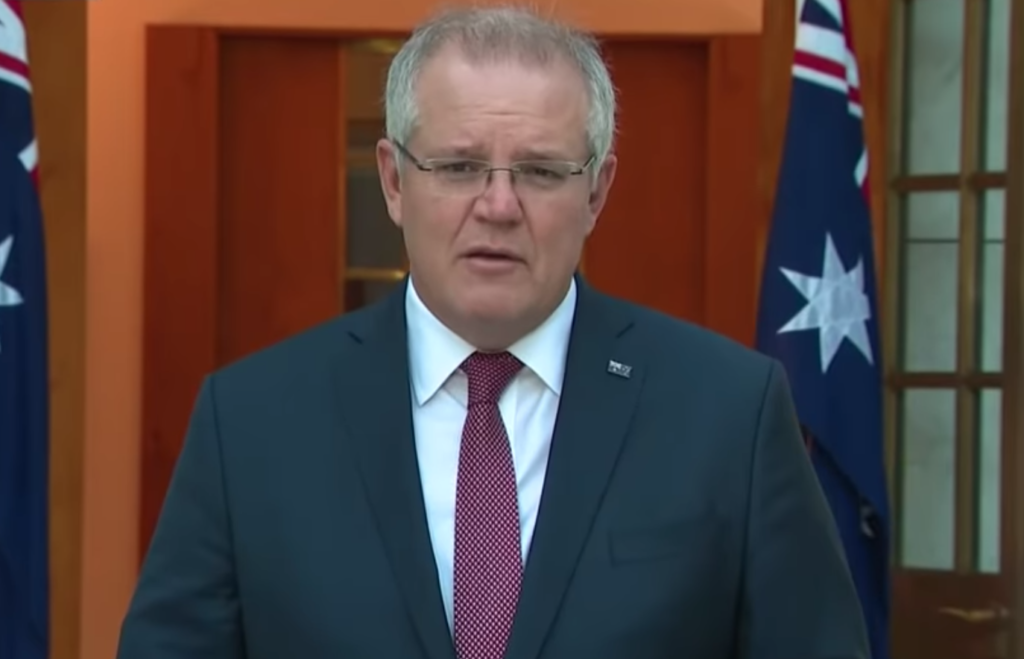The next sitting of Parliament, due to commence on the 4th August, has been cancelled following a request by Prime Minister Scott Morrison on Saturday, with advice from acting Chief Medical Officer Paul Kelly.
The cancellation comes due to very real concerns about the spread of COVID-19, and a need to prevent politicians travelling to Canberra from around the country.
But unlike other workplaces — many that managed to get themselves sorted out immediately in the initial days and weeks of the first wave of the virus — Parliament won’t be using a virtual workaround. Nor will the sitting days that are due to take place be rescheduled.
While the technology that would enable online meetings has been tested by the two chambers of Parliament, concerns have been raised about whether it’s strong enough for debates and crucial votes.
With 151 members of the lower house needing to be involved at one time, and 76 in the Senate, it would certainly be challenging and far from ideal.
But given the times, would it be impossible? No. And other parliaments internationally, including in Britain, New Zealand and Canada, have proven what can be done. The European Union Parliament started operating online as far back as March 26.
It may take a bit of creative thinking and acceptance that the level of ‘debate’ that’s usually experienced in Parliament will look a little different.
It’s creative thinking that well and truly could have been done by now, just as it’s been done by other industries across Australia that may have previously thought physical distancing measures would make their work impossible. (Although some office-based workplaces, as I noted last week, have been dangerously behind the times.)
We’re a country that’s seen major sporting codes do everything possible to push ahead with their competitions, including moving clubs into isolation and playing hubs. ASX listed boards are now meeting and making their own crucial decisions, online. Court proceedings have moved online. Major events are being run, virtually. Those who have worked from home may have seen and experienced some limitations in the tech available, but have also realised the potential to collaborate with other team members without needing to be physically present. We’re seeing people making sacrifices everyday regarding the ways they would like to work — and in some cases moving into self isolation and quarantine in order to enable them to keep doing what they do, and/or keep their families safe.
Professor Anne Twomey raised concerns back in March about an almost five month period of little parliamentary scrutiny of the government occurring, especially as it’d be a critical period of extreme powers being exercised. She wrote that suggestions the Australian Constitution forbids virtual sittings of parliament are far from clear. There are options available.
One key limitation, of course, is good internet access, something that’s certainly not offered equally around the country. In 2020, these are issues that should have been solved a long time ago, and this has seriously hindered the ability of some people to work and collaborate online. But connectivity issues are far from new — MPs have been working from their electorates for years with them, and if they genuinely couldn’t figure it out during this next sitting period, then surely we could have made resources and options available for them to find an immediate solution?
And if politicians are not going to physically meet, or undertake their work virtually, could they not be called on in a formal way to step up their work in their own electorates? To run dedicated, regular virtual forums with community members? To take this opportunity to organise direct channels to engage with their constituents? Even to run a form of Question Time virtually, so that current issues can be scrutinised?
The Opposition is not fighting the two week cancellation, but is demanding an immediate look at options in order to ensure Parliament can meet on August 24.
The cancellation comes as Victoria faces a major health crisis, as well as the COVID-19 outbreak escalating in NSW and any idea of nationally “being in this together” disappearing. We have state borders closed, premiers pointing fingers at each other, and parts of the country set to be seriously left behind in the push to rebuild. And we’re just weeks out from the major “cliff” that economists are forecasting in September, as JobKeeper payments and the enhanced JobSeeker payments are due to expire in their current form.
This Parliamentary sitting period should have been an opportunity to examine and debate the Treasury’s economic update, which Josh Frydenberg is due to release on Thursday (and has been given a travel exemption to leave Victoria for Canberra in order to do so), and includes the Government’s vital plans for what’s next on JobSeeker and JobKeeper. It should have been an opportunity for the Prime Minister himself to face questions, and to step up his communications and reassurances to the Australian public.
The sitting period should not be happening as normal in person. But these far-from-normal times have been with us for months now– arguably more than enough time to figure out how Parliamentarians can keep doing their work. It’s a new normal that could be with us for some time. For how long can parliament remain cancelled?


